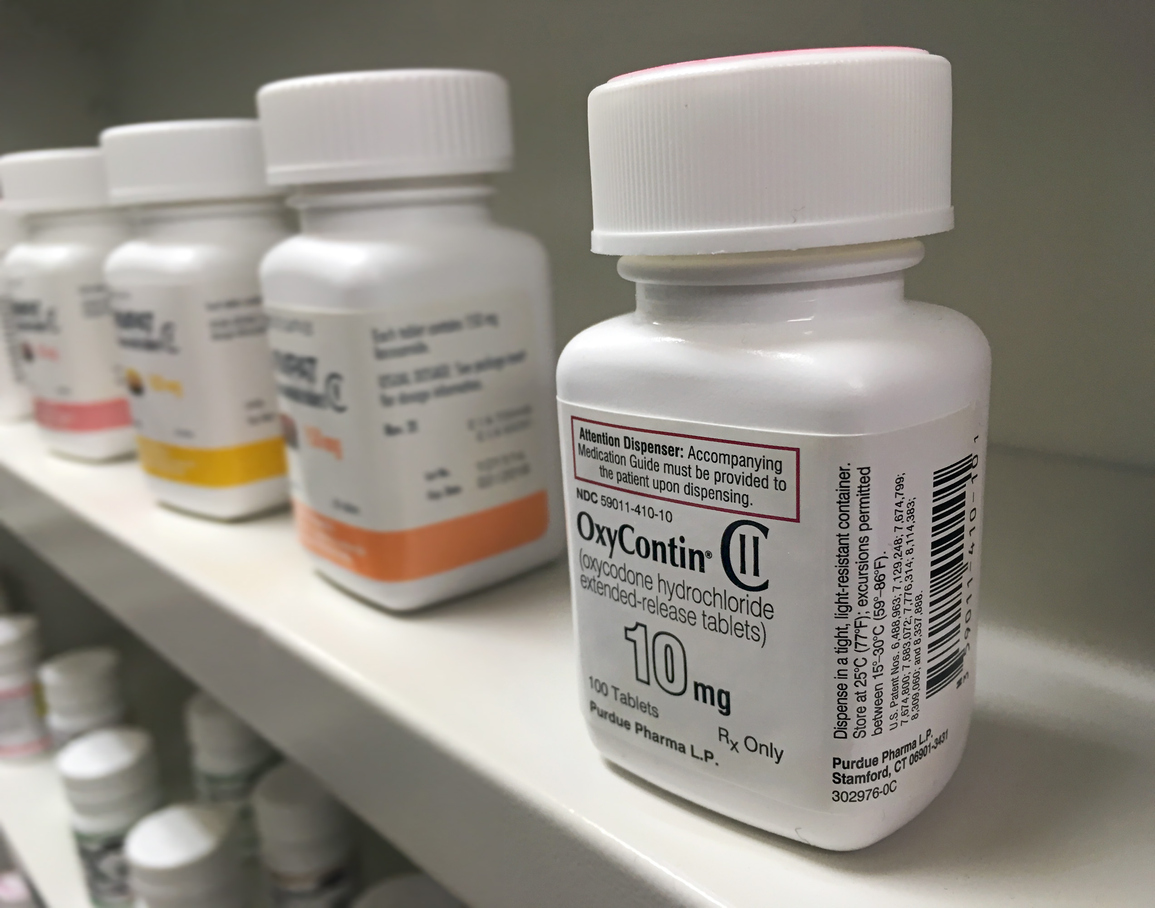The Scoop: Publicis pays $350 million for its role in marketing the opioid epidemic
Plus: Mark Zuckerberg apologizes on Capitol Hill; AI tech allows for easy product placement in influencer vids.

Publicis has settled a lawsuit for its role in pushing OxyContin to doctors — and, by extension, patients — for a whopping $350 million and agreed not to take on any other opioid clients, CNN reported.
The French firm worked with McKinsey from 2010-2019 on a campaign called “Evolve to Excellence,” which encouraged the highest-prescribing doctors to write even more scripts for the highly addictive drug. Publicis made various collateral materials that painted OxyContin as a way to deter addiction and to write bigger doses, even when not medically indicated, according to New York Attorney General Letitia James, who helped oversee the settlement on behalf of a consortium of 10 states.
“For a decade, Publicis helped opioid manufacturers like Purdue Pharma convince doctors to overprescribe opioids, directly fueling the opioid crisis and causing the devastation of communities nationwide,” James wrote in a statement.
“The fight against the opioid crisis in the United States requires collaboration across industries, lawmakers, and communities, and we are committed to playing our part,” Publicis wrote in a statement provided to CNN. “That is why we worked to reach this agreement, and why we are also reaffirming our long-standing decision to turn down any future opioid-related projects.”
Why it matters: The work we do as communicators matters. Deeply. Publicis put together a highly effective campaign. They did their job and did it well.
And those actions contributed to a portion of the 645,000 opioid overdose deaths that occurred from 1999-2021 in the U.S., to say nothing of the lives that were ruined, if not ended, by the drugs Publicis helped promote.
This is a sober reminder to each and every marketer and public relations professional about the power we wield. It’s exhilarating to do your job well and see the impacts on bottom lines and business goals.
But you must remember the real-world impacts your actions have on real people and choose to use your skills responsibly.
Editor’s Top Reads:
- Earlier this week, tech leaders were hammered during a Congressional hearing on how social networks impact and interact with children. The Wall Street Journal reported that during the course of the hearing, Sen. Lindsey Graham told executives from Meta and TikTok that they “have blood on (their) hands.” Families of children who had suffered child sex abuse or died by suicide as a result of social media use were in attendance, and after a demand from Missouri Sen. Josh Hawley, Meta chief Mark Zuckerberg apologized to them,despite deflecting concerns in his testimony. “I’m sorry for everything that you have all gone through. It’s terrible. No one should have to go through the things that your families have.” There isn’t enough media training in the world to help prepare for a situation like this, but handling these situations compassionately and privately could have prevented this stunning scene from playing out on national television.
- AI technology can now digitally place products directly into videos in less than 24 hours, allowing influencers to quickly share those videos with the world. The New York Times reports that the technology, created by Rembrand, can do something as subtle as inserting a branded poster in the background of a dancing TikToker to something as flashy as allowing a can of soda to float and wiggle while two influencers chat about bands. For brands, this is a chance to experiment with new ways to insert products into social media conversations, often without the hassle of sending physical items directly to influencers.
- January jobs numbers smashed Wall Street expectations, coming in with a strong 353,000, well ahead of the Dow Jones estimate of 185,000, according to CNBC. The unemployment rate was 3.7%, down a tick from the expected 3.8%. This may sound counterintuitive in the wake of the seemingly unending waves of layoff announcements lately, but it’s a reminder that the economy is broad. Current layoffs are hitting tech and other white-collar workers hard, but the overall U.S. economy remains strong. Keep your finger on the pulse of how your audience is feeling — and keep your eye on the actual numbers, not just vibes.
Allison Carter is editor-in-chief of PR Daily. Follow her on X or LinkedIn.







